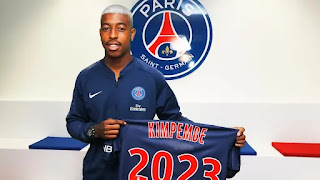Germany’s ‘Future Labs’: Equipping the Next Generation to Combat Climate Change
At the heart of Schweinfurt, Germany, a revolutionary educational program christened ‘Future Labs’ is making waves. This avant-garde initiative, conceptualized and implemented by geography teacher Oliver Kunkel, is now a cornerstone of the curriculum at Walther-Rathenau-Gymnasium. The program aims to tackle the growing climate crisis head-on, by equipping students with practical knowledge and hands-on experience.
Climate Education through Field Trips
As part of the Future Labs curriculum, students are grouped and taken on field visits to diverse businesses, including wineries and forestry operations. The objective is to provide the students with a firsthand understanding of the impacts of climate change on these sectors. In addition to these field visits, students dedicate three hours each week to brainstorming solutions to counter the consequences of climate change.
Educating the Community
One of the defining features of the Future Labs program is its emphasis on community outreach. The students are encouraged to share their newfound knowledge with their families and wider communities, thereby spreading the ‘virus of change’. This ripple effect is a crucial aspect of the program, as it seeks to broaden the conversation around climate change and its impacts.
Proposing Real-world Solutions
A quintessential example of this real-world problem-solving approach is the connection Future Labs has made with a class in Ghana. Here, students are grappling with the evaporation of lake water critical for agriculture. The proposed solution, devised by the Schweinfurt students led by Lilly-Ann Kraus, involves using floating solar panels to reduce evaporation. The students are now working on sourcing used solar panels and organizing fundraising for its implementation.
Brain-friendly Learning
Future Labs also integrates ‘brain-friendly learning’ into its curriculum. This approach incorporates neuropsychological insights into traditional education, including mindfulness exercises, movement and coordination training, and subject-specific learning techniques. The program aims to empower students with self-efficacy by allowing them to tackle real-world problems and develop creative, problem-solving skills.
The vision of Future Labs extends beyond Germany. Kunkel dedicates three to four hours daily to expand the concept across Europe and Africa, forging partnerships with universities and climate research institutes. As he endeavors to create a global collaboration of students working together in Future Labs, the hope is that their collective ingenuity could develop effective strategies against climate change.
FOR MORE INFORMATION PLS FOLLOW US ON FACEBOOK @Marolling / INSTAGRAM @Marolling1 / X @Marolling1: ALSO STREAM US LIVE ON ALL DIGITAL PLATFORMS via : https://linktree/marollinge\ #marollingOnline




Comments